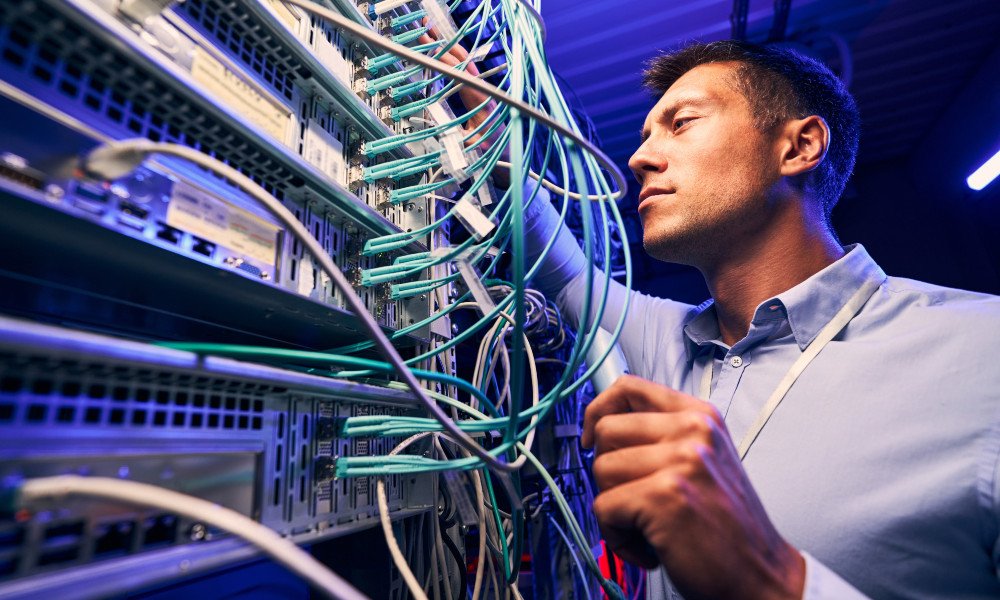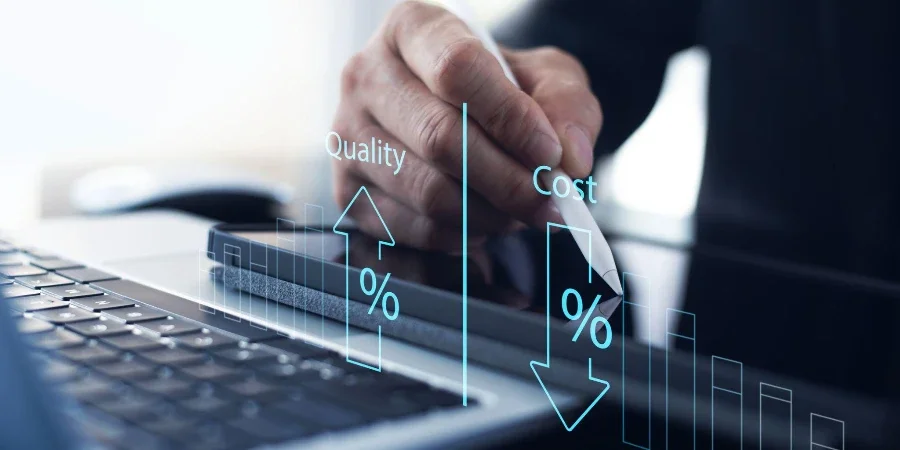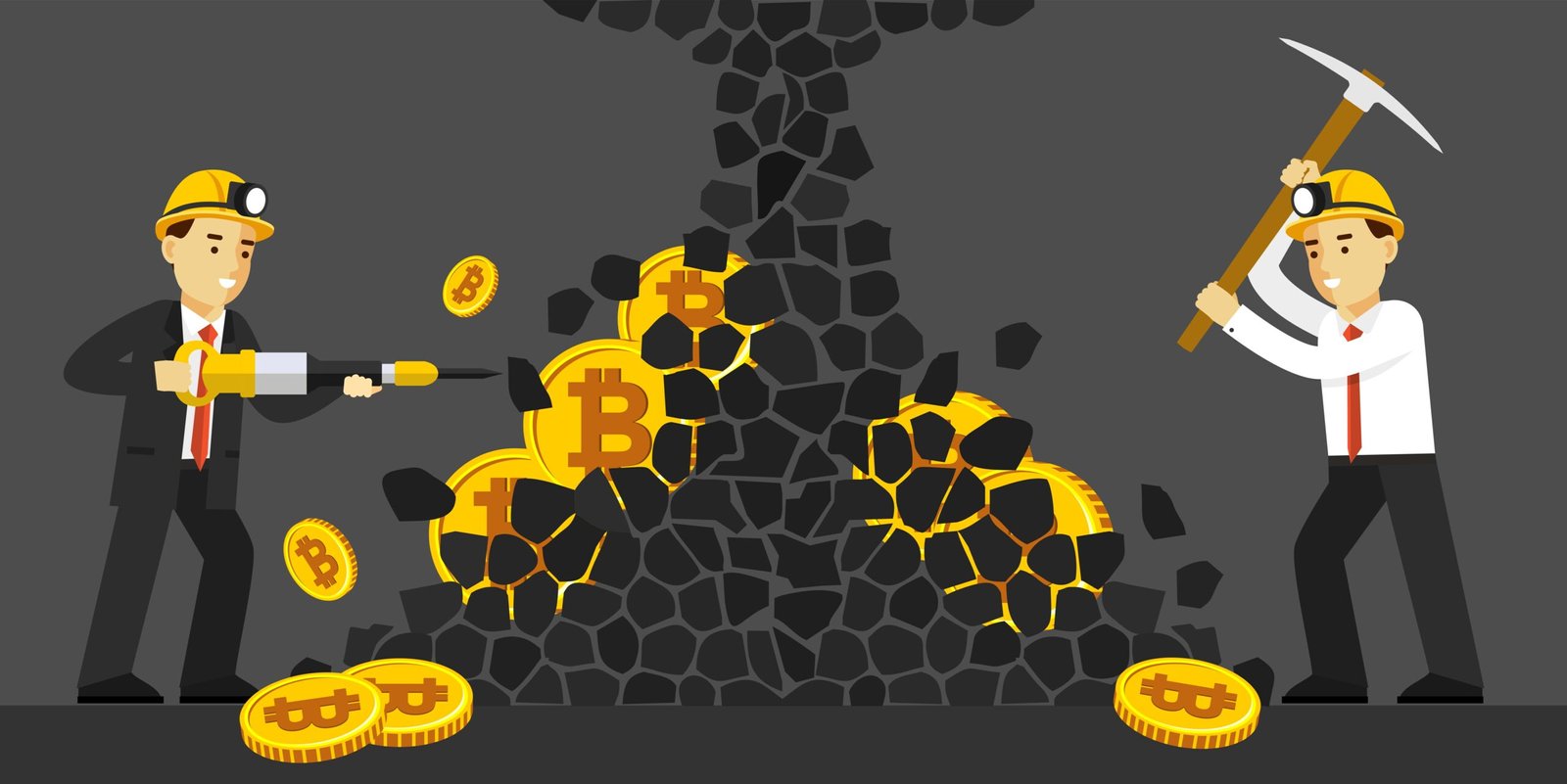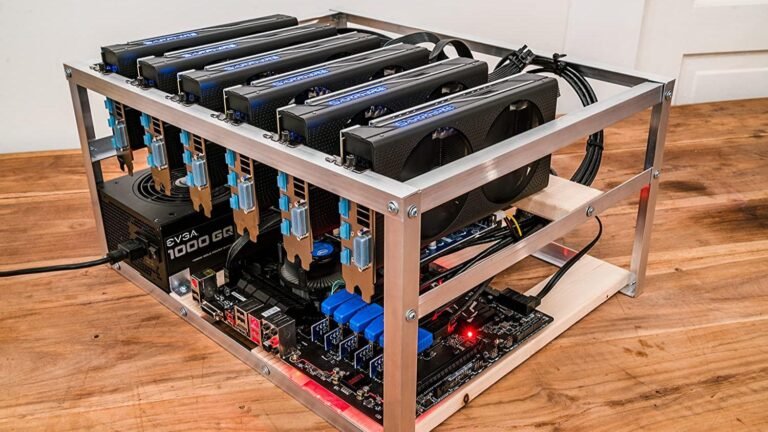Starting your cryptocurrency mining journey requires careful planning and a clear understanding of the Bitcoin mining rig setup cost. Whether you’re a beginner looking to enter the mining space or an experienced investor expanding your operations, knowing the exact financial commitment is crucial for success. The initial investment for a Bitcoin mining rig can range anywhere from $2,000 for a basic setup to over $50,000 for industrial-grade operations, depending on your goals and chosen equipment.
Understanding the Bitcoin mining rig setup cost involves more than just purchasing hardware. You’ll need to consider electricity consumption, cooling systems, infrastructure requirements, and ongoing operational expenses. This comprehensive guide breaks down every aspect of mining rig costs, helping you make informed decisions about your cryptocurrency mining investment in 2025.
Bitcoin Mining Rig Setup Cost: Hardware Components Breakdown
ASIC Miners: The Heart of Your Operation
Application-Specific Integrated Circuit (ASIC) miners represent the most significant portion of your Bitcoin mining rig setup cost. These specialized devices are designed exclusively for Bitcoin mining and offer superior efficiency compared to traditional GPU setups.
Popular ASIC Miners and Their Costs:
- Antminer S19 Pro: $2,500 – $3,500
- Antminer S19j Pro: $3,000 – $4,200
- Whatsminer M30S++: $2,800 – $3,800
- AvalonMiner 1246: $2,200 – $3,000
- Antminer T19: $1,800 – $2,500
The hash rate, power consumption, and efficiency rating directly impact both the initial cost and long-term profitability of your mining operation. Higher-end models like the Antminer S19 Pro deliver up to 110 TH/s while consuming approximately 3,250W of power.
Power Supply Units (PSUs)
A reliable power supply is essential for stable mining operations. Most ASIC miners require dedicated PSUs that can handle their high power demands.
PSU Cost Breakdown:
- Standard 1600W PSU: $150 – $300
- High-efficiency 2000W PSU: $250 – $450
- Industrial-grade 3000W PSU: $400 – $700
Cooling and Ventilation Systems
Proper cooling is critical for maintaining optimal performance and extending hardware lifespan. The cooling requirements significantly impact your overall Bitcoin mining rig setup cost.
Cooling Solutions:
- Industrial fans (4-inch): $50 – $100 each
- Exhaust ventilation system: $300 – $800
- Immersion cooling setup: $2,000 – $5,000
- Air conditioning units: $800 – $2,500
Networking Equipment
Stable internet connectivity ensures your mining rig stays connected to the blockchain network and mining pools.
Networking Costs:
- Ethernet cables and switches: $50 – $150
- Router/modem upgrades: $100 – $300
- Network monitoring tools: $100 – $250
Infrastructure and Setup Expenses

Electrical Infrastructure Upgrades
Most residential properties require electrical upgrades to support mining operations safely. This represents a significant one-time cost in your Bitcoin mining rig setup cost calculation.
Electrical Upgrade Costs:
- Circuit breaker panel upgrades: $1,200 – $3,000
- Dedicated 240V outlets installation: $200 – $500 per outlet
- Electrical wiring and conduits: $500 – $1,500
- Professional electrician fees: $80 – $150 per hour
Physical Space Preparation
Creating an optimal mining environment requires space modifications to handle noise, heat, and ventilation requirements.
Space Preparation Expenses:
- Soundproofing materials: $300 – $800
- Ventilation ductwork: $400 – $1,200
- Flooring and rack systems: $500 – $1,500
- Fire safety equipment: $200 – $600
Operating Costs and Monthly Expenses
Electricity Costs: The Biggest Ongoing Expense
Electricity consumption represents the largest operational cost for any mining operation. Understanding your local electricity rates is crucial for calculating profitability.
Average Monthly Electricity Costs by Region:
- Residential rates (US average): $0.12 – $0.15 per kWh
- Commercial rates: $0.08 – $0.12 per kWh
- Industrial rates: $0.06 – $0.10 per kWh
A single Antminer S19 Pro consuming 3,250W running 24/7 would cost approximately $280 – $350 monthly at average residential rates.
Internet and Connectivity
Reliable internet service is essential for maintaining connection to mining pools and the blockchain network.
Monthly Connectivity Costs:
- High-speed internet service: $50 – $150
- Backup internet connection: $30 – $80
- Static IP address: $10 – $30
Maintenance and Replacement Costs
Regular maintenance ensures optimal performance and extends equipment lifespan.
Monthly Maintenance Budget:
- Replacement fans and components: $50 – $150
- Cleaning supplies and tools: $20 – $50
- Professional maintenance services: $100 – $300
Mining Pool Fees and Transaction Costs
Pool Fee Structure
Most miners join mining pools to ensure consistent payouts. Pool fees typically range from 1% to 3% of your mining rewards.
Popular Mining Pools and Fees:
- Antpool: 2.5% fee
- F2Pool: 2.5% fee
- Slush Pool: 2% fee
- Poolin: 2.5% fee
- ViaBTC: 2% fee
Wallet and Exchange Fees
Managing your mined Bitcoin involves transaction fees and potential exchange costs.
Associated Fees:
- Bitcoin transaction fees: $1 – $20 per transaction
- Exchange withdrawal fees: 0.1% – 0.5%
- Hardware wallet costs: $60 – $200
Budget Planning for Different Mining Scale Operations
Small-Scale Home Mining Setup
Total Initial Investment: $3,000 – $8,000
This setup includes:
- One ASIC miner (Antminer S19 or similar)
- Power supply unit
- Basic cooling system
- Electrical upgrades
- Networking equipment
Monthly Operating Costs: $300 – $500
Medium-Scale Mining Operation
Total Initial Investment: $15,000 – $40,000
This setup includes:
- 3-5 ASIC miners
- Professional cooling system
- Electrical infrastructure upgrades
- Rack mounting systems
- Advanced monitoring tools
Monthly Operating Costs: $800 – $1,800
Large-Scale Commercial Mining
Total Initial Investment: $50,000 – $200,000+
This setup includes:
- 10+ ASIC miners
- Industrial cooling systems
- Commercial electrical setup
- Professional installation
- Redundant power systems
Monthly Operating Costs: $2,500 – $8,000+
Profitability Analysis and ROI Calculations
Factors Affecting Mining Profitability
Understanding profitability requires analyzing multiple variables beyond the initial Bitcoin mining rig setup cost.
Key Profitability Factors:
- Bitcoin price fluctuations
- Network difficulty changes
- Electricity costs
- Hardware efficiency
- Pool fees
ROI Timeline Expectations
Based on current market conditions and average electricity rates, most mining operations see ROI within 12-24 months, assuming stable Bitcoin prices and network conditions.
ROI Scenarios:
- Optimal conditions: 8-12 months
- Average conditions: 12-18 months
- Challenging conditions: 18-36 months
Using Mining Profitability Calculators
Several online tools help estimate mining profitability. Popular calculators include:
- WhatToMine
- CryptoCompare Mining Calculator
- CoinWarz Bitcoin Calculator
- NiceHash Profitability Calculator
For accurate calculations, you can reference the CoinDesk Bitcoin mining guide for current market insights and profitability metrics.
Cost-Saving Strategies and Optimization Tips

Buying Used Equipment
Purchasing second-hand mining equipment can reduce your initial Bitcoin mining rig setup cost by 20-40%. However, consider warranty limitations and potential shorter lifespans.
Where to Find Used Equipment:
- eBay and Amazon
- Specialized mining forums
- Local cryptocurrency communities
- Mining equipment resellers
Bulk Purchase Discounts
Ordering multiple units often provides significant discounts from manufacturers and distributors.
Typical Bulk Discounts:
- 2-5 units: 5-8% discount
- 6-10 units: 10-15% discount
- 10+ units: 15-25% discount
Energy Efficiency Optimization
Choosing high-efficiency miners reduces long-term operational costs despite higher upfront investments.
Efficiency Comparison:
- Older models: 40-60 J/TH
- Current generation: 25-35 J/TH
- Latest models: 20-30 J/TH
Alternative Energy Solutions
Implementing renewable energy sources can significantly reduce operational costs.
Renewable Energy Options:
- Solar panel systems: $15,000 – $40,000 initial cost
- Wind power generators: $10,000 – $30,000 initial cost
- Hydroelectric systems: $20,000 – $60,000 initial cost
Legal and Regulatory Considerations
Compliance Costs
Depending on your location, mining operations may require permits, licenses, or compliance with specific regulations.
Potential Compliance Costs:
- Business licenses: $50 – $500
- Environmental permits: $200 – $2,000
- Tax registration and accounting: $500 – $2,000 annually
- Legal consultation: $150 – $400 per hour
Insurance Requirements
Protecting your mining investment with appropriate insurance coverage.
Insurance Types:
- Equipment insurance: $500 – $2,000 annually
- Business liability: $300 – $1,200 annually
- Fire and theft coverage: $400 – $1,500 annually
Future-Proofing Your Mining Investment
Upgradeability Considerations
Planning for future hardware upgrades helps extend your operation’s lifespan and profitability.
Upgrade Planning:
- Modular power systems
- Expandable cooling capacity
- Flexible electrical infrastructure
- Scalable networking solutions
Technology Evolution Impact
The mining industry continuously evolves with new, more efficient hardware releases. Planning for technology transitions is crucial for long-term success.
Evolution Trends:
- Improved energy efficiency
- Higher hash rates
- Better cooling solutions
- Advanced monitoring capabilities
Financing Options for Mining Operations

Traditional Financing
Several financing options can help manage the initial Bitcoin mining rig setup cost.
Financing Sources:
- Bank loans: 4-8% interest rates
- Equipment financing: 6-12% interest rates
- Credit lines: 8-15% interest rates
- Cryptocurrency-backed loans: 5-10% interest rates
Mining Hosting Services
Consider mining hosting as an alternative to self-hosting, which eliminates many upfront infrastructure costs.
Hosting Benefits:
- No electrical upgrades required
- Professional cooling and maintenance
- Reduced noise concerns
- Scalability options
Hosting Costs: $0.06 – $0.12 per kWh plus monthly hosting fees
Also Read: Best Bitcoin Mining Machine 2025 Buy Complete Guide to Top ASIC Miners & Profitability
Common Mistakes and How to Avoid Them
Underestimating Total Costs
Many newcomers focus only on hardware costs while overlooking infrastructure, operational, and maintenance expenses.
Cost Categories Often Overlooked:
- Electrical infrastructure upgrades
- Cooling system requirements
- Ongoing maintenance costs
- Insurance and compliance expenses
Inadequate Planning for Heat and Noise
Failing to properly plan for heat dissipation and noise management can lead to additional costs and potential shutdowns.
Planning Considerations:
- Neighbor relations and noise ordinances
- Heat management in residential areas
- Fire safety precautions
- Ventilation requirements
Ignoring Network Difficulty Changes
Bitcoin’s network difficulty adjusts every 2,016 blocks, affecting mining profitability. Failing to account for difficulty increases can lead to unrealistic ROI expectations.
Seasonal Considerations and Cost Variations
Winter vs. Summer Operations
Seasonal temperature variations significantly impact cooling costs and overall operational efficiency.
Seasonal Cost Differences:
- Summer cooling costs: 20-40% higher
- Winter heating benefits: Potential 10-20% savings
- Equipment efficiency variations: 5-15% difference
Market Timing for Equipment Purchases
Timing equipment purchases around market cycles can result in significant savings.
Best Purchase Timing:
- Bear market periods: 20-40% discounts
- End of quarter sales: 10-15% discounts
- Bulk inventory clearances: 15-30% discounts
For additional insights on market timing and equipment selection, consider exploring internal resources about [cryptocurrency market analysis] and [mining hardware comparisons].
Conclusion
Understanding the complete Bitcoin mining rig setup cost is essential for making informed investment decisions in the cryptocurrency mining space. From initial hardware investments ranging from $3,000 to $200,000+ to ongoing operational expenses, successful mining requires careful financial planning and realistic profitability expectations.
The key to profitable mining lies not just in minimizing the initial Bitcoin mining rig setup cost, but in optimizing long-term operational efficiency. By considering all cost factors including electricity, cooling, maintenance, and regulatory compliance, you can build a sustainable mining operation that generates consistent returns.
Whether you’re planning a small home mining setup or a large commercial operation, thorough cost analysis and careful budgeting will set the foundation for your mining success. Start by calculating your specific Bitcoin mining rig setup cost based on your local conditions, electricity rates, and investment capacity to determine the most suitable approach for your situation.

